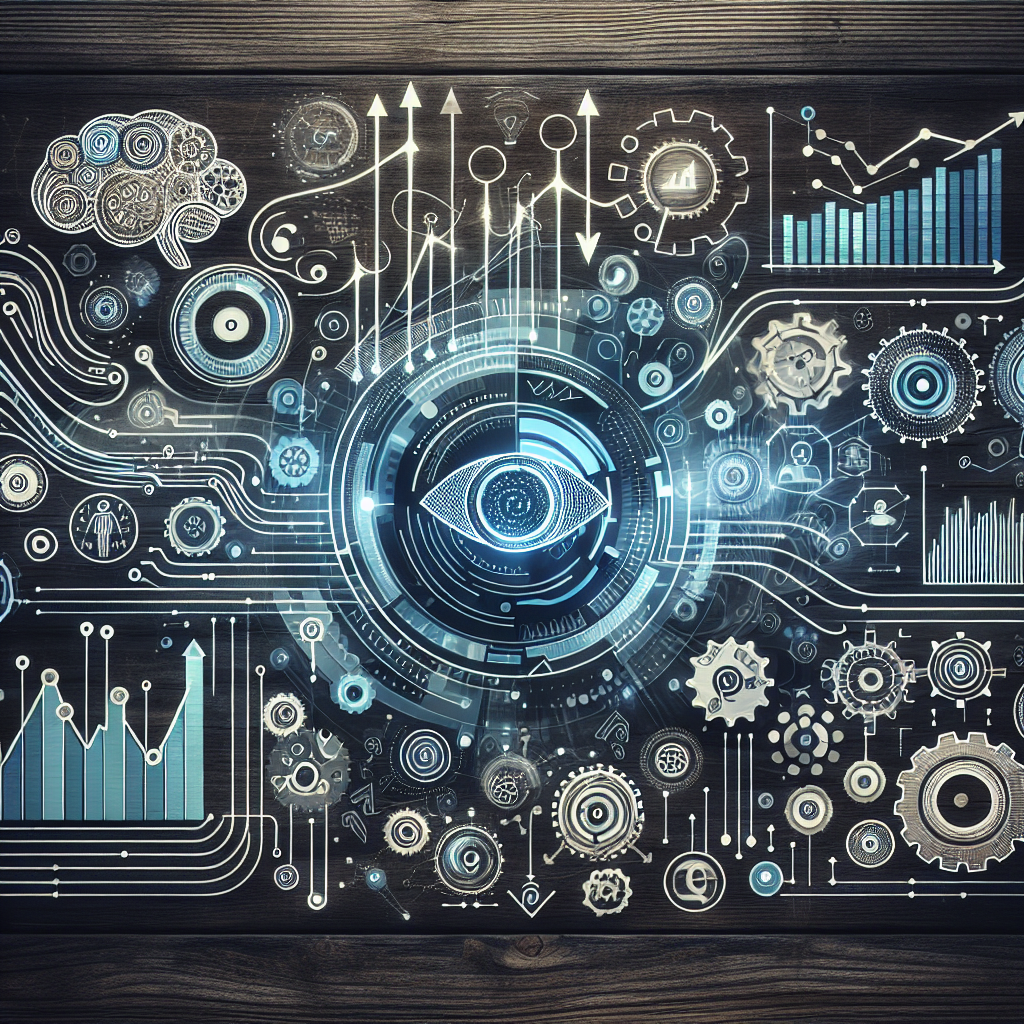In today’s fast-paced and ever-changing market, businesses are constantly looking for ways to stay ahead of the curve and predict future trends. One tool that is proving to be invaluable in this endeavor is artificial intelligence (AI). AI solutions are revolutionizing the way companies analyze data, make predictions, and ultimately make more informed decisions.
AI solutions use advanced algorithms and machine learning techniques to process vast amounts of data and identify patterns and trends that humans may not be able to detect. By analyzing historical data, market trends, and consumer behavior, AI can help businesses forecast future trends and make strategic decisions to capitalize on opportunities and mitigate risks.
One of the key advantages of AI solutions is their ability to process and analyze data at a much faster pace than humans. This allows businesses to make real-time decisions based on up-to-date information, giving them a competitive edge in the market. In addition, AI can also help businesses automate repetitive tasks, freeing up employees to focus on more strategic and creative initiatives.
Another benefit of AI solutions is their ability to provide more accurate predictions and insights. By analyzing a wide range of data sources, including social media, news articles, and financial reports, AI can identify correlations and patterns that may not be immediately apparent to humans. This can help businesses make more informed decisions and anticipate market trends before they occur.
AI solutions are being used across a wide range of industries, from finance and retail to healthcare and manufacturing. In the finance industry, for example, AI solutions are being used to predict stock prices, detect fraud, and optimize trading strategies. In the retail industry, AI is helping businesses personalize marketing campaigns, optimize pricing strategies, and forecast demand.
In the healthcare industry, AI solutions are being used to analyze medical images, predict patient outcomes, and improve diagnosis accuracy. In the manufacturing industry, AI is being used to optimize production processes, predict equipment failures, and improve supply chain management.
Despite the many benefits of AI solutions, there are also some challenges and concerns that businesses need to be aware of. One of the main concerns is the potential for bias in AI algorithms. If the data used to train an AI model is biased, the model may produce inaccurate or unfair results. This can have serious implications, especially in industries such as finance and healthcare where decisions based on AI predictions can have a significant impact on people’s lives.
Another challenge is the potential for AI solutions to replace human jobs. While AI can automate repetitive tasks and improve efficiency, it is important for businesses to find a balance between human and machine intelligence. AI should be used to augment human capabilities, not replace them entirely.
In conclusion, AI solutions are a powerful tool for predicting market trends and making informed decisions. By leveraging advanced algorithms and machine learning techniques, businesses can gain valuable insights from data and stay ahead of the competition. However, it is important for businesses to be aware of the challenges and concerns associated with AI and to use it responsibly and ethically.
—
FAQs:
Q: How accurate are AI predictions in predicting market trends?
A: AI predictions can be highly accurate, especially when trained on large and diverse datasets. However, it is important to note that AI predictions are not foolproof and should be used as a tool to inform decisions, not as a substitute for human judgment.
Q: How can businesses ensure that AI algorithms are unbiased?
A: Businesses can ensure that AI algorithms are unbiased by carefully selecting and curating the data used to train the algorithms. It is also important to regularly audit and test AI models for bias and to incorporate diversity and inclusion principles into the development process.
Q: Are AI solutions expensive to implement?
A: The cost of implementing AI solutions can vary depending on the complexity of the project and the size of the organization. However, there are now many affordable AI solutions available on the market that cater to businesses of all sizes.
Q: How can businesses ensure that AI solutions complement rather than replace human employees?
A: Businesses can ensure that AI solutions complement rather than replace human employees by training employees to work alongside AI tools, providing opportunities for upskilling and reskilling, and fostering a culture of collaboration between humans and machines.

